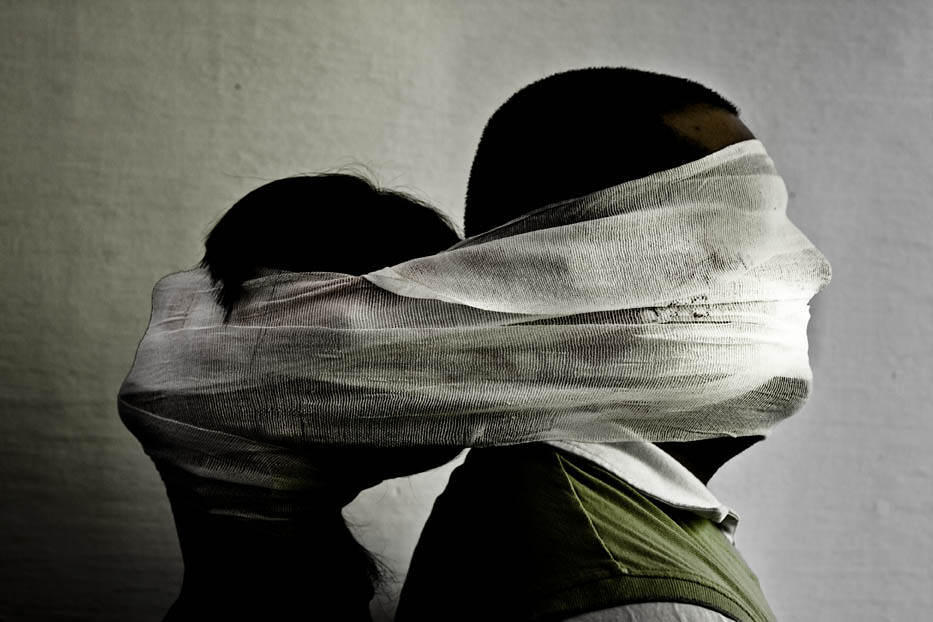 (Image by Luca Rossato used under CC via)
(Image by Luca Rossato used under CC via)
“Did you do it to function better or to look normal?”
This is Number One question about limb-lengthening for people with dwarfism, and it opens the Pandora’s box of Body Image, a topic that, no matter who you are, lends itself to resolution no more easily than does Religion. But as I begin a series on the depths of our own feelings about our bodies, I want to first tackle the biggest influence of our self-worth: i.e., others’ opinion. After all, if we were fully convinced that no one else cared one bit what we looked like, how much would we care?
The answer to that may not be easy, but the Number One reason why any of us care what others think about our looks certainly is. It’s all about Dating. Getting laid. Finding a mate. Every parent of a child with dwarfism is warned at Little People of America meetings that whatever ostracizing goes on in elementary school will be outdone by the perils of puberty. The mainstream often dismisses this as an unfortunately natural stage of development, but people designated as minorities by the mainstream know that it is merely an introduction to what lies beyond adolescence. Too often the adult world dodges any responsibility it bears for the lookism young people embrace.
Whether following conventional or unconventional beauty standards, adults obsess over unattractiveness. We are simply less blunt than teenagers, but therein all the more insidious, disguising our trashing of others as the (pseudo-)philosophy of having a “type”:
“I just need a really well-built man. I can’t get into skinny guys.”
“I mean, I don’t want to be taller than my man. No one does.”
“I’d honestly be grossed out if I found out my date was transsexual.”
“I do not like hairy bodies.”
Whatever. We all do it, but we do it way too much. Most of us can see patterns to our attractions, but the more we talk about it, the more we cultivate it in our minds, convincing ourselves that it’s what we need in order to be turned on. Which at best really does nothing—does it really help to weed out people in a crowd based on their bodies before we even talk to them? is there some efficiency to dating that you get points for?—and at worse, limits our experiences and nurtures the dangerous misconception that beauty standards are immovable objects.
A coworker of mine once claimed, “I’m not racist, but I’m just not attracted to black girls.” Dude. Forgetting for a moment that starting any sentence with “I’m not a racist, but—” is possibly one of the least convincing ways to exonerate yourself, are you sure of this because you’ve never been attracted to black girls before? By that logic, I’m just not attracted to Slovakian guys. Or Sri Lankan guys. Or Cornish guys. Or Oklahoman guys. Or… wait a minute, this could go on for a while. Even if you are set in your ways and for some reason believe this helps you, what good does it do to voice it?
Granted faces and bodies evoke visceral feelings that transcend reason. Attraction itself is never a choice. But history has proven that disgust at the idea of interracial or international relationships is the result of social conditioning, and likewise homophobia, transphobia, lookism and ableism thrive thanks to the open support they are given in the media and in everyday conversation.
The battle against lookism is too often dismissed as hopeless by the simplified assertion that “people like to look at pretty people, end of story.” Yes, we do. But the definition of “pretty” is too often assumed to be universal, somehow rooted in our biological urge to choose a mate whose genes are resilient. Studies of history and across cultures prove the definition is socially constructed. Pale has been considered at times beautiful and at other times sickly. Tan has been sometimes seen as gorgeous and other times derided on racist grounds. Round and curvy is sometimes good and sometimes bad. Skinny is sometimes good and sometimes bad. Our supposedly “natural” repulsion at signs of unhealthiness is as random as fashion itself, often disenfranchising disabled individuals while simultaneously promoting faces injected with poison, lungs too constricted to breathe properly, bodies too lacking in fat to menstruate, not to mention blue and green eyelids. Mentioning our repulsion at others’ natural physical features can be so unproductive, so paranoia-inducing, so ultimately responsible for others’ self-hatred. This why I admire anyone who fights whatever temptation they have to describe what they dislike by instead describing what they love.
When we tell our loved ones what exquisite hair or adorable hands or gorgeous eyes they have, it’s more a display of affection than a statement of what we require to be intrigued. When we tell someone, “You are so beautiful,” it’s a testament to the sum of their parts, the combination of their perfections and imperfections. And there’s nothing wrong with discussing styles or personas one finds attractive. Gentle voices, deep voices, explosive laughter, sly eyes, short hair, long hair, a graceful step, a firm step, an assertive look, a cool stance; understanding why any of this draws one in leads to more awareness of one’s own character. It also sparks dialogue that challenges the bland beauty standards of the day.
But someone’s physical traits alone are superficial—not to mention transient—and placing any real value on them is shallow. We all have our shallow sides, but we should be embarrassed to advertise them too openly, the way sitcom directors should be embarrassed to have the audience squeal when two characters kiss.


Well thought out and well said. I look forward to further discussions of body image on your blog. It is a deep and easily misunderstood issue.